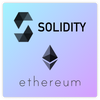As the legal industry continues to evolve, new technologies are constantly emerging that are transforming the way legal professionals approach their work. One such technology that has gained significant attention in recent years is blockchain. Initially developed as the underlying technology for cryptocurrencies like Bitcoin, blockchain has since expanded into various industries, including law.
Blockchain is a decentralized, distributed, and immutable digital ledger that records transactions or data in a transparent and secure manner. It relies on cryptographic techniques to ensure data integrity and prevent unauthorized access, making it highly secure and tamper-proof. This unique combination of decentralization, transparency, and security makes blockchain an ideal technology for a wide range of applications, including Alternative Dispute Resolution (ADR).
ADR refers to the methods of resolving legal disputes outside of traditional courtroom litigation, such as arbitration, mediation, and negotiation. These methods are known for their flexibility, cost-effectiveness, and quicker resolution compared to traditional litigation. Fresher lawyers, who are just starting their legal careers, can benefit greatly from understanding the connection between blockchain and ADR, as it presents new opportunities for them to provide innovative and efficient legal services to their clients.
Let’s explore the connection between blockchain and ADR and how it can benefit fresher lawyers in their legal practice.
Increased Transparency and Trust
One of the key features of blockchain is its transparency. All transactions or data recorded on the blockchain are visible to all participants, and any changes or modifications to the data are recorded in a tamper-proof manner. This transparency can greatly enhance trust between parties involved in ADR processes.
For example, in arbitration, where parties submit their evidence and arguments to an arbitrator for a decision, blockchain can be used to securely store and track all the relevant information, including evidence, pleadings, and decisions. This ensures that all parties have access to the same information, and any changes made to the data are recorded in a transparent and verifiable manner. Fresher lawyers can leverage this transparency to build trust with their clients and other parties involved in the ADR process, ultimately leading to more successful and efficient dispute resolution.
Enhanced Security and Data Integrity
Data security and integrity are crucial in the legal industry, as any tampering or unauthorized access to sensitive information can have severe consequences. Blockchain’s use of cryptographic techniques makes it highly secure and resistant to tampering, ensuring that data stored on the blockchain remains secure and reliable.
In ADR processes, where parties may exchange sensitive information, such as evidence, documents, and settlement offers, maintaining data security and integrity is paramount. By utilizing blockchain, fresher lawyers can ensure that all data exchanged during ADR processes is securely stored and cannot be tampered with, providing an additional layer of protection for their client’s information.
Smart Contracts for Automated ADR Processes
Smart contracts are self-executing contracts that run on blockchain and automatically enforce predefined conditions. They can be used to streamline and automate various legal processes, including ADR.
Fresher lawyers can utilize smart contracts to automate certain aspects of ADR processes, such as arbitration or mediation. For example, a smart contract can be programmed to automatically trigger a resolution or settlement agreement once certain conditions are met, such as the agreement of all parties involved. This can greatly speed up the ADR process and eliminate the need for manual intervention, making it more efficient and cost-effective.
Increased Efficiency and Cost-effectiveness
Efficiency and cost-effectiveness are crucial considerations in any legal practice. ADR processes are often chosen for their quicker resolution and lower costs compared to traditional litigation. Blockchain can further enhance these benefits by providing a more efficient and cost-effective platform for ADR.
For example, blockchain can streamline the documentation and record-keeping process in ADR by providing a single source of truth for all relevant information. This can reduce the need for multiple copies of documents, manual record-keeping, and the potential for errors or discrepancies. Fresher lawyers can leverage blockchain to create a more streamlined and efficient ADR process for their clients, saving time and resources.
Decentralization for Neutral and Impartial ADR
One of the challenges in ADR processes is ensuring neutrality and impartiality. Traditional ADR methods may involve a centralised entity or arbitrator, which can raise concerns about bias or lack of transparency.
Blockchain’s decentralised nature can address these concerns by providing a neutral and impartial platform for ADR. As blockchain operates on a distributed network without a single point of control, it eliminates the need for a centralised entity to oversee the process. This can increase the confidence of all parties involved in the ADR process, including fresher lawyers, in the fairness and integrity of the resolution.
Global Accessibility and Cross-border Dispute Resolution
Blockchain has the potential to facilitate cross-border dispute resolution by providing a global platform for ADR. As blockchain operates on a decentralised network, it is not limited by geographical boundaries or jurisdictional constraints.
Fresher lawyers can leverage blockchain to expand their ADR practice beyond their local jurisdiction and offer their services to clients around the world. Blockchain can enable parties from different countries to engage in ADR processes securely and transparently, without the need for physical presence or complicated legal procedures. This can open up new opportunities for fresher lawyers to build an international ADR practice and serve clients from diverse jurisdictions.
Conclusion
Blockchain technology has the potential to revolutionize the legal industry, and its impact on ADR cannot be overlooked. As fresher lawyers enter the legal profession, understanding the connection between blockchain and ADR can provide them with a competitive advantage by offering innovative and efficient legal services to their clients.
Blockchain’s transparency, security, automation through smart contracts, increased efficiency, decentralization, and global accessibility can all contribute to a more effective and streamlined ADR process. Fresher lawyers can leverage blockchain to build trust with their clients, enhance data security, automate certain aspects of ADR, and expand their practice beyond local jurisdictions.
As blockchain continues to gain traction in the legal industry, fresher lawyers who embrace this technology can position themselves at the forefront of legal innovation and provide cutting-edge services to their clients in the ever-evolving landscape of ADR. It is essential for fresher lawyers to stay updated with the latest developments in blockchain and explore its potential for ADR, as it can offer them a competitive edge in their legal careers.
Follow Us on our social media to stay updated with the latest news on law blocks.
Website — https://lawblocks.io/
LinkedIn — https://www.linkedin.com/in/law-blocks-365731225/
Discord — https://discord.com/channels/903649107200061440/903649107200061442
Reddit — https://www.reddit.com/user/LawBlocks/comments/rd873t/law_blocks_a_legaltech_community/
Telegram — https://t.me/LawBlocks_updates






Discussion (0)